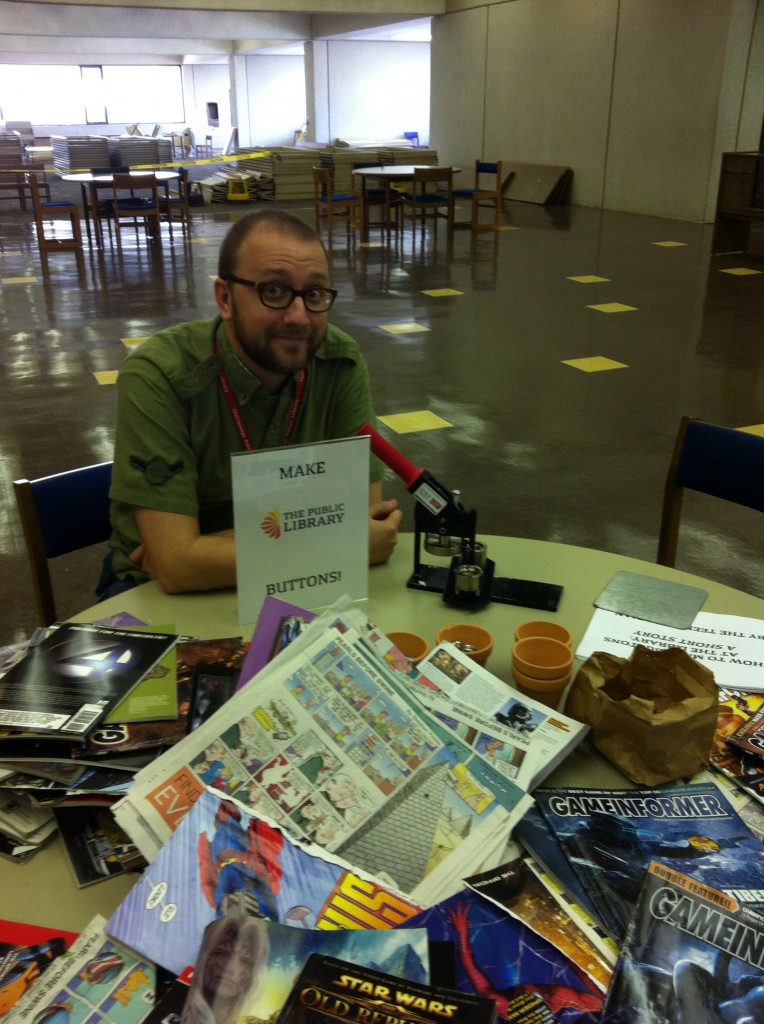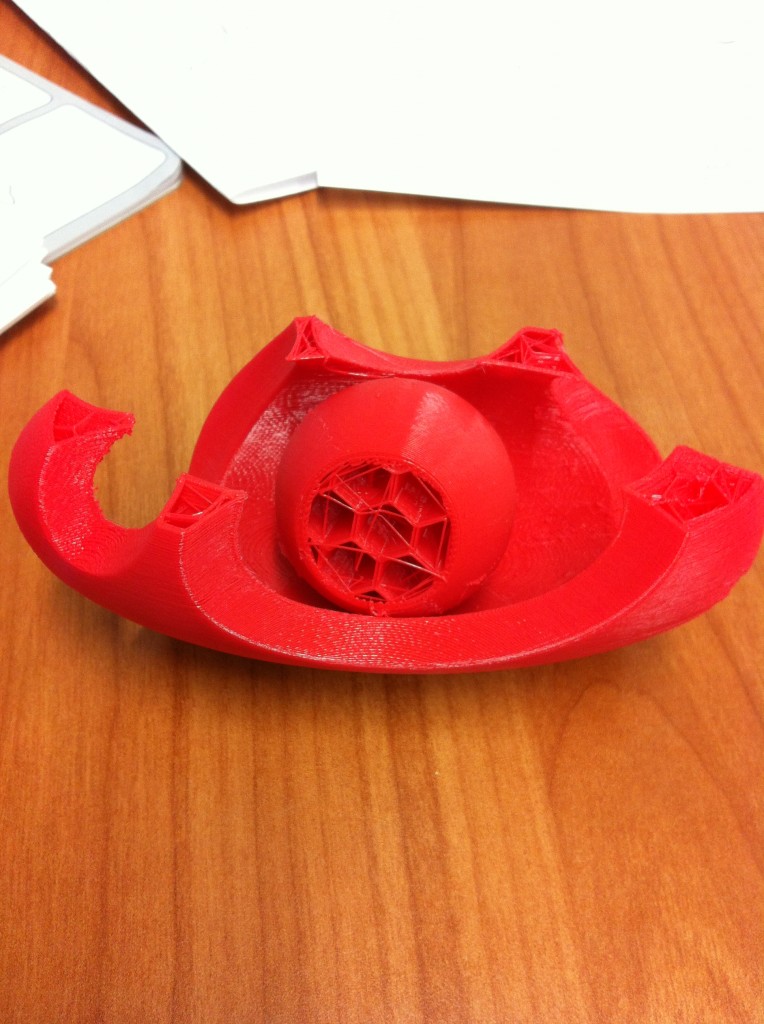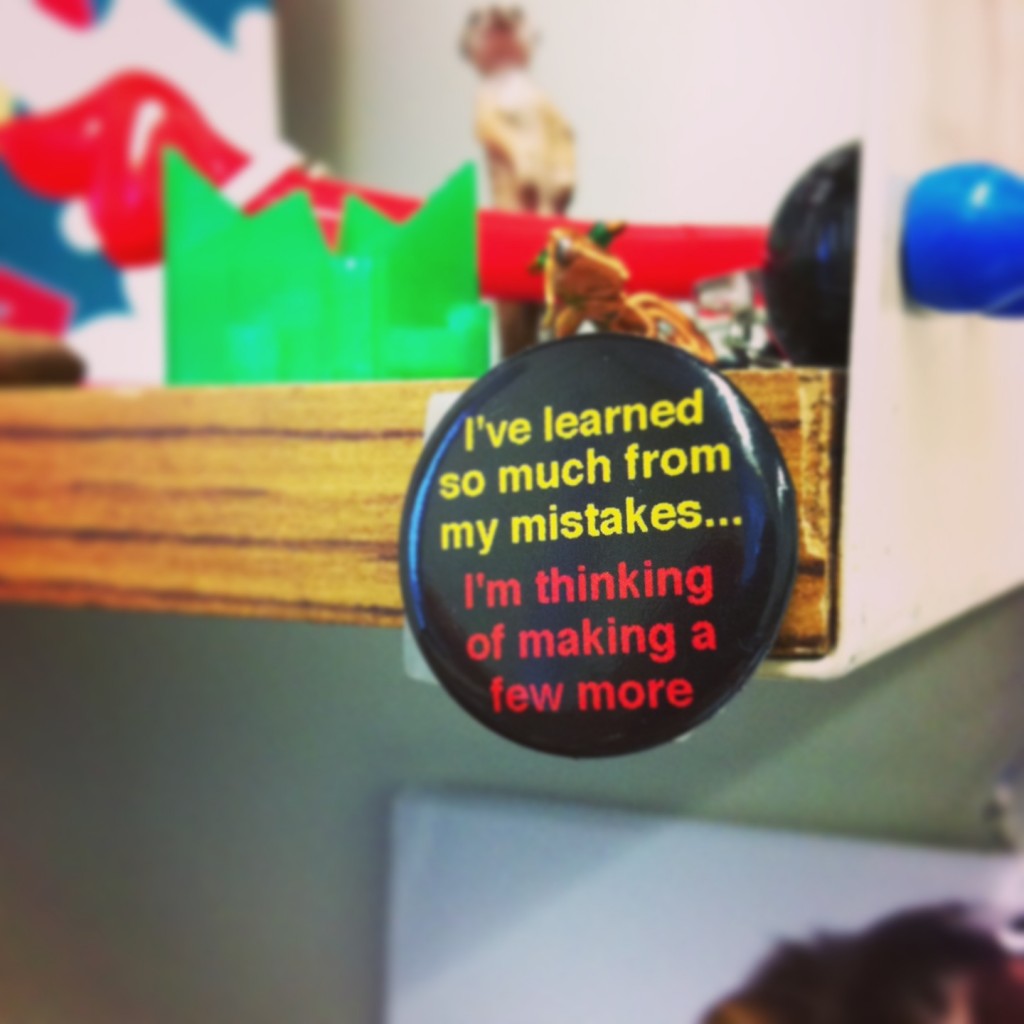Warren: Hi Justin! I found this weird avant garde art video online that you’re featured in! I didn’t realize you were into that – tell me more!
Justin: No, not an art video…I was actually testing out On Air Google+ Hangouts with my co-worker James McNutt. We’re using the On Air Hangouts to record the guest speakers we have for our DEV DEV:<summer of code/> camp at the Chattanooga Public Library.
W: So it was just a test? Why put it online?
J: Yah, just a test. We put it online because that’s the whole point of the on air hangout…to record a conversation and share it online. Plus, it was kind of neat to watch how we worked through any trouble we had.
W: When I visited Chattanooga Library a few weeks ago, Nate Hill explained the concept of staff working in the public area on the 4th Floor, being visible to everyone, showing the library work processes on the big public white-board wall etc. – is sharing this video an extension of that thinking?
J: Yes. What we’re doing on the 2nd Floor of the Chattanooga Public Library (our space dedicated to ages 0-18) lines up really well with what the 4th Floor is going for. We want to try neat things and see if they stick. We’re happy to show our successes, failures, and the road we took to get there.
W: Can you share any other ways you’re putting your tests and trials out there?

J: Sure! We’ve got a bunch of extra tables just sitting around as we remodel/reshuffle how the 2nd Floor looks. Instead of them just sitting around collecting dust, we’ve made them into what we’re calling creation stations. One has a button maker sitting on it that kids and teens can use to make buttons. Another has a whole mess of art supplies. Another has a bowl in the shape of a bear that I found sitting in a closet. That bear is now the AWESOME BEAR. Anyone can come up to it, write something awesome on a slip of paper and put it in the AWESOME BEAR. The AWESOME BEAR will then share all of the awesome things kids and teens see around their community! Somedays it works, other days it doesn’t.
W: But isn’t that embarrassing putting all the errors and mistakes out there for the public to see?
J: Not at all. Part of the fun is trying out new things and seeing how the community reacts. If they don’t respond to something we do on the 2nd Floor, all that says to me is “keep on thinking, keep on trying.” It’s actually pretty exciting.
W: That’s very cool. I think it’s good for us to remember that while we might be good at librarianship, and a few others things, there are people in our community who use our libraries who are much better at certain things, and their input and observations on our library processes and trials can help build better services.
So I see you’re doing a summer coding camp at Chattanooga – what is that teaching the teens about keeping your mistakes open and public? Software development is a wonderful example of how something (like computer code) can get better and better the more it’s distributed and developed by many people.
J: When I was a teen, I used to think that adults never made mistakes. They were the ones in power and they never messed anything up. Boy, I was wrong. That way of thinking had a big impact on me as I grew into adulthood. I put a lot of pressure on myself to be that “perfect adult” but what I was doing was something that I could not keep up with. No one is perfect. We all make mistakes and you know what? We grow from those mistakes.
I think making these mistakes and keeping them public is a great thing. It shows that we’re all human and that we’re all learning and growing.
W: We’re messing around with a 3D printer here, and one of my first pieces was dodgy so we finished the print before it was complete. I was going to throw it out but Neal my co-worker stopped me and pointed out that the print actually showed the insides and structure of a 3D print. Turns out, it’s a piece that other staff look at and are intrigued by the most!
J: That’s so rad to hear! When we create something, of course we want it to be perfect. But our colleagues and friends will see things a different way. Your idea of something that is junk may be someone else’s idea of gold.
A few weeks ago when you visited Chattanooga, you talked about how Australia is planning and implementing a country wide fiber optic system. With a project that big, there’s gotta be some mistakes that are made along the way. How has your country been managing this project and any mistakes that are made? I can imagine that if there are any bumps along the way there may be a huge public reaction.
W: Such a big, expensive project comes with a lot of scrutiny, and every mistake or misjudgment can easily get blown out of proportion by the project’s critics. One thing that this and other technology related projects has taught me is the economic concept of ‘opportunity cost’. Some of the criticisms leveled at Australia’s National Broadband Network include the idea that we should wait until the relevant technology gets cheaper, more reliable, etc. The opportunity cost is that while we’re waiting for that time, we miss out on the benefits that implementing that technology now could bring.
I think this thinking helps to round out the idea of ‘making mistakes’ in our daily work. By not making mistakes, by not taking responsible risks, by waiting until someone else makes it perfect before can adopt it, we miss an opportunity to benefit from any success of the project now.
–Post by Warren Cheetham and Tame The Web Contributor Justin Hoenke
Warren Cheetham is the Coordinator of Information and Digital Services at CityLibraries Townsville. He has worked in public libraries for twenty-one years, and his professional interests include the application of technology to public libraries, and how to best deliver information services, reader engagement, corporate research services and training to library staff and customers in an online environment.


